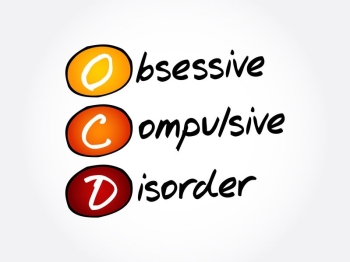
OBSESSIVE-COMPULSIVE DISORDER: Approximately one-third to one fifth of people suffering from anorexia are diagnosed with an obsessive-compulsive disorder. (Similarly, people struggling with the different problematic behaviors, gambling, sex, and hoarding also have a high right of having an obsessive - compulsive disorder). The obsessions and or compulsions from this disorder interferes with the individuals social and occupational functioning. For a diagnosis of obsessive-compulsive disorder, the obsessions and or compulsions are time-consuming (minimum of one hour a day) and cause a lot of distress for the individual experiencing them.
OBSESSIONS (obsessive compulsive disorder)
* Thoughts, images, ideas, or impulses that are recurrent, unwanted and distressing to the individual experiencing them.
* The person experiencing these thoughts or impulses tries to suppress them or neutralize them with another thought or action.
* The person experiencing these intrusive thoughts, images, or impulses recognizes that they are a product of their own mind and not a psychotic symptom.
COMPULSIONS (obsessive compulsive disorder)
* Repetitive and intentional behaviors that are performed in response to an obsession.
* The person engages in the repetitive behavior in an attempt to prevent an unwanted and feared event from happening.
* The person engaging in the behavior recognizes that it is not rational but feels compelled to perform it anyway.
Struggling with an obsessive compulsive disorder? Contact a therapist today. Center for Growth / Therapy in Philadelphia 215 922 5683 x 100
























